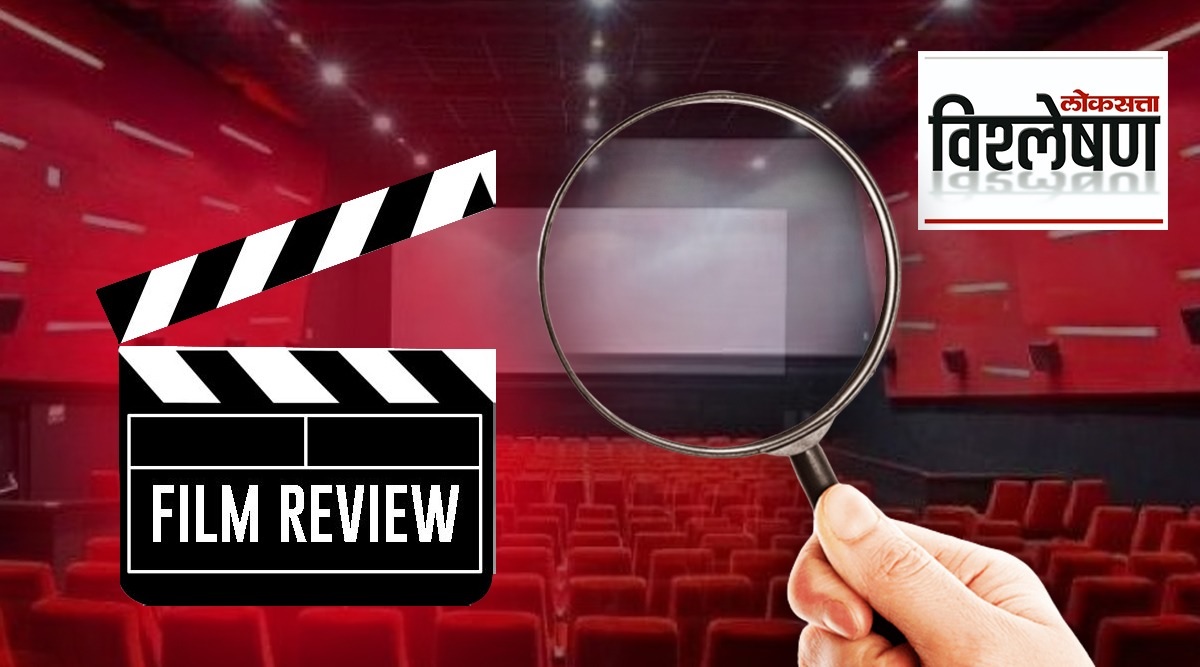Game Changer Movie Review: What makes a film truly groundbreaking? This isn’t just about box office success; it’s about a movie’s lasting influence on filmmaking, storytelling, and even culture. We’ll dive into how critics identify and define these cinematic game-changers, exploring the recurring themes and stylistic choices in their reviews. Get ready to analyze the impact of movies that redefined the cinematic landscape.
We’ll examine the criteria used to judge a film’s transformative power, comparing and contrasting different interpretations of what constitutes a “game changer.” From technical innovations to narrative breakthroughs, we’ll explore the various elements that elevate a film beyond mere entertainment to a significant cultural event. We’ll look at how different publications and critics approach the task of evaluating a film’s potential for lasting impact, highlighting the nuances and complexities involved in such assessments.
That “Game Changer” movie review really got me thinking! It was so intense, I almost forgot I was supposed to check the ircc express entry draw results. Seriously though, after that film, I needed a break from all the drama, and maybe some good news. Back to that review – the ending was a total cliffhanger!
Defining “Game Changer” in Film Criticism
The term “game changer,” frequently applied to movies, signifies a film’s profound and lasting impact on the cinematic landscape. It’s not merely about box office success or critical acclaim; it encompasses a broader influence, reshaping techniques, narratives, and audience expectations. This analysis will delve into the multifaceted criteria used to define a “game changer” film, examining its influence across various aspects of filmmaking and its reception within both historical and contemporary contexts.
Criteria for Identifying a “Game Changer” Film

Identifying a true game-changer requires a nuanced understanding of its impact across multiple dimensions. A film’s technical innovations, narrative structures, audience engagement, and cultural resonance all contribute to its potential designation as a game changer. Consider, for example, the impact of Citizen Kane (1941) on cinematography, or the revolutionary storytelling of Pulp Fiction (1994) and its influence on nonlinear narratives.
These films not only entertained but also pushed boundaries, influencing generations of filmmakers.
- Technical Innovation: Did the film introduce groundbreaking special effects, cinematography techniques, or editing styles that significantly influenced subsequent filmmaking? The Lord of the Rings: The Fellowship of the Ring (2001), for instance, significantly advanced CGI technology and its integration into live-action filmmaking.
- Narrative Structure and Storytelling: Did the film experiment with unconventional narrative structures, character development, or thematic explorations that redefined cinematic storytelling? Memento (2000), with its reverse chronological narrative, stands as a prime example.
- Audience Reception and Cultural Impact: Did the film generate significant cultural conversations, inspire imitations, or redefine genre conventions? The widespread adoption of certain cinematic styles or themes can be traced to a specific game-changer film, such as the influence of Star Wars (1977) on science fiction cinema.
- Long-Term Influence: A truly game-changing film maintains its relevance and influence over time, continuing to inspire and shape future filmmakers. The enduring impact of films like Casablanca (1942) on romantic narratives and filmmaking techniques exemplifies this lasting power.
Interpretations of “Game Changer” Across Film History, Game changer movie review

The interpretation of “game changer” has evolved throughout film history. Early examples might be defined by technical breakthroughs, while later films might be recognized for their innovative storytelling or cultural impact. The criteria for assessment remain fluid, influenced by the prevailing cinematic trends and technological advancements of each era. Comparing a silent film’s groundbreaking use of editing techniques with a contemporary film’s revolutionary CGI effects necessitates an understanding of the specific context of each era.
Okay, so that “Game Changer” movie review was intense! The sheer scale of the action scenes reminded me of something equally breathtaking – like the incredible light shows you can see at the drone show Windsor. Seriously, check out those aerial displays; the choreography is just as captivating as the movie’s plot twists. Getting back to the review, though, the special effects were definitely a highlight.
For example, early films like The Great Train Robbery (1903) were considered revolutionary for their use of editing and narrative structure. In contrast, contemporary examples often focus on innovative storytelling and technological advancements. The comparison highlights the changing standards of what constitutes a “game changer” across different periods.
Analyzing “Game Changer” Movie Reviews: Game Changer Movie Review
Analyzing reviews that label a film a “game changer” reveals common themes and stylistic choices employed by critics. These reviews often highlight a film’s unique contribution to cinematic language, its cultural significance, and its lasting impact on filmmaking. By examining these critical analyses, we can gain a deeper understanding of the criteria used to assess a film’s transformative potential.
Themes and Arguments in “Game Changer” Reviews

Reviews identifying a film as a “game changer” frequently emphasize several key themes. These include the film’s technical innovations, its groundbreaking narrative structure, its unique thematic explorations, and its broader cultural impact. Critics often use superlative language to highlight the film’s originality and influence, comparing it to landmark films that redefined cinematic conventions. The reviews may also analyze how the film challenged expectations and pushed the boundaries of its genre.
- Technical Mastery: Reviews often praise the film’s technical achievements, highlighting its use of innovative cinematography, editing techniques, special effects, or sound design.
- Narrative Innovation: Critics frequently discuss the film’s unique narrative structure, its character development, and its thematic exploration. The originality of the storytelling is often cited as a key factor in its game-changing status.
- Cultural Impact: Reviews often highlight the film’s cultural resonance, discussing its influence on popular culture, its impact on social discourse, and its lasting legacy.
Stylistic Choices in Review Writing
Reviewers employ specific stylistic choices to convey a film’s groundbreaking nature. They might use evocative language, draw comparisons to influential predecessors, and provide detailed analyses of the film’s technical and narrative innovations. The tone is often enthusiastic and celebratory, reflecting the reviewer’s recognition of the film’s transformative impact.
For instance, a review might compare a film’s innovative use of CGI to the groundbreaking special effects of 2001: A Space Odyssey (1968), highlighting the film’s contribution to the evolution of visual effects in cinema. Such comparisons provide a framework for understanding the film’s place within the history of cinematic innovation.
Final Review
Ultimately, defining a “game changer” movie is a subjective but fascinating process. While objective criteria like box office success and awards recognition can play a role, the true impact of a game-changer often lies in its lasting cultural resonance and influence on subsequent filmmakers. By analyzing critical reviews and considering the diverse perspectives of film scholars and critics, we can gain a deeper appreciation for the films that have truly reshaped the cinematic world.
So, what are your picks for game-changing movies? Let’s discuss!
FAQ Corner
What are some examples of movies often considered “game changers”?
Citizen Kane, 2001: A Space Odyssey, The Godfather, and Pulp Fiction are frequently cited examples, each influencing filmmaking in distinct ways.
How do box office numbers relate to a film being a “game changer”?
Okay, so you’re looking for a killer “Game Changer” movie review, right? Let’s talk visuals – the cinematography in that film was insane! Think about the scale, and how it compares to something like the devastating footage you’ll see if you check out this incredible aerial view of the LA fires from a plane: la fires from plane.
That kind of perspective really puts things into context, and makes you appreciate the director’s vision in “Game Changer” even more. It’s all about that impact, you know?
While high box office receipts can indicate popularity, they don’t automatically qualify a film as a game changer. True game changers often have a deeper, lasting impact on the art of filmmaking itself.
Do all critics agree on which films are game changers?
No, critical opinions vary widely. What one critic considers groundbreaking, another might see as simply good filmmaking. The “game changer” label often reflects a consensus, but not always a unanimous one.
